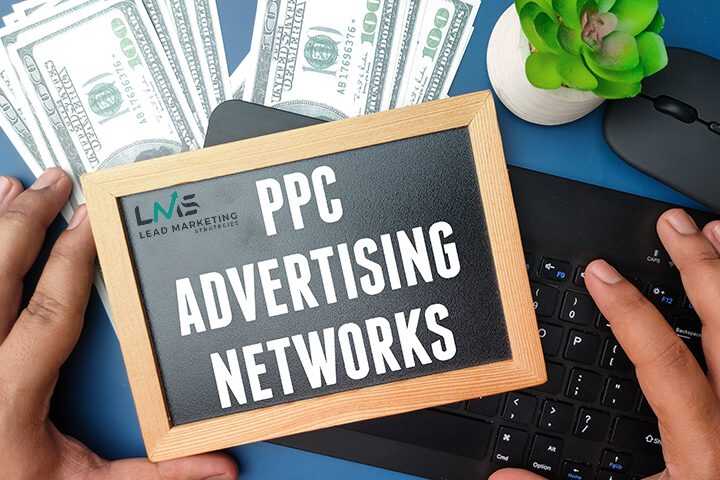 In the ever-changing landscape of digital marketing, a multitude of strategies and platforms have come into play to aid businesses in enhancing their visibility and attracting potential customers. Among these, Pay-Per-Click advertising (PPC) stands out as one of the most efficient and targeted methods for boosting website traffic, escalating sales, and fostering lead generation. This blog post is designed to serve as an introduction to PPC marketing, delve into the complexities of PPC campaigns, and lay out its various advantages. Furthermore, we will offer best practices for effective PPC advertising to help businesses amplify their online footprint. Since 2007, Lead Marketing Strategies (LMS) has been providing the tools required for you to excel in the competitive arena of digital marketing.Your journey towards mastering Pay-Per-Click campaigns starts here. Learn the principles of Pay-Per-Click ads and discover professional tips for PPC ads to optimize your PPC ad campaigns. We at LMS are dedicated to demystifying Pay-Per-Click campaigns and offering a comprehensive guide to understanding PPC. Stay tuned to discover successful PPC advertising techniques, understand PPC ad optimization, and learn the key metrics in PPC advertising. Whether you're a beginner looking for a PPC advertising tutorial or an experienced marketer wanting to maximize ROI with PPC advertising, our resources are tailored to meet your needs. Welcome to the world of PPC advertising with Lead Marketing Strategies.
In the ever-changing landscape of digital marketing, a multitude of strategies and platforms have come into play to aid businesses in enhancing their visibility and attracting potential customers. Among these, Pay-Per-Click advertising (PPC) stands out as one of the most efficient and targeted methods for boosting website traffic, escalating sales, and fostering lead generation. This blog post is designed to serve as an introduction to PPC marketing, delve into the complexities of PPC campaigns, and lay out its various advantages. Furthermore, we will offer best practices for effective PPC advertising to help businesses amplify their online footprint. Since 2007, Lead Marketing Strategies (LMS) has been providing the tools required for you to excel in the competitive arena of digital marketing.Your journey towards mastering Pay-Per-Click campaigns starts here. Learn the principles of Pay-Per-Click ads and discover professional tips for PPC ads to optimize your PPC ad campaigns. We at LMS are dedicated to demystifying Pay-Per-Click campaigns and offering a comprehensive guide to understanding PPC. Stay tuned to discover successful PPC advertising techniques, understand PPC ad optimization, and learn the key metrics in PPC advertising. Whether you're a beginner looking for a PPC advertising tutorial or an experienced marketer wanting to maximize ROI with PPC advertising, our resources are tailored to meet your needs. Welcome to the world of PPC advertising with Lead Marketing Strategies.What is Pay Per Click Advertising?
Pay-Per-Click (PPC) advertising, an integral part of search engine marketing, is a unique online advertising model that allows marketers to pay only when a user clicks on their online ads. This marketing strategy is a vital part of digital marketing and significantly different from traditional ad placements as businesses only pay for user interaction and not just exposure. PPC ads can appear on search engine results pages, social media platforms, web pages, and mobile apps, making them a great way to boost brand awareness and reach the right people.The PPC model operates on an ad auction system, where marketers set bids on specific keywords that resonate with their target audience. The ad rank, a combination of the maximum bid and quality score, determines which PPC ads show up in the Google search or on other search engines. If a user explores these relevant keywords, the PPC ads with the highest ad rank appear at the top of the search results. As a result, these PPC campaigns help businesses to appear on the first page of the search engine results page, contributing to higher visibility.Various ad platforms support PPC advertising, including Google Ads (formerly Google AdWords), Microsoft Advertising (formerly Bing Ads), and social networks like Facebook Ads. Google Ads, one of the most popular platforms, allows businesses to display ads in Google search results, Google Display Network, and YouTube. Similarly, Facebook Ads offer businesses the chance to reach their target audience through engaging ad formats on their platform. By investing in PPC advertising, businesses can effectively control their marketing budget, measure conversion rate, and ensure that their pay-per-click ads are seen by users actively searching for their products or services.PPC marketing provides businesses with the opportunity to boost their online visibility and drive conversions. The PPC services advantages extend from cost-effectiveness, efficient budget utilization, instantaneous results, to in-depth analytics, making it an essential tool for digital marketing. PPC advertising enables businesses to optimize their ad budget by ensuring they pay only for tangible engagement. This model is particularly beneficial to small businesses that want to avoid wastage of resources on irrelevant ads.PPC advertising's targeted approach contributes to an increased return on investment (ROI). Businesses can specify several parameters like geographic locations, demographics, and even the right time to display ads to their target audience. This strategic approach increases the relevance of the ad and boosts the likelihood of conversions, leading to improved ROI compared to traditional advertising strategies.Another critical advantage of PPC advertising is the immediacy of results. Unlike search engine optimization (SEO) strategies, which may take a long time to improve organic search results, PPC campaigns can start driving traffic almost instantly. This quick response is particularly beneficial for businesses looking to establish an online presence or exploit short-term marketing opportunities. Moreover, PPC platforms offer robust analytics tools that provide detailed insights into the performance of your PPC landing pages and ads, enabling businesses to maximize their marketing ROI.By following the best practices, doing the right keyword research, and choosing the right keywords, PPC advertising can significantly enhance a business's digital marketing strategy. It provides different options for ad groups, including text ad, image ads, and product listing ads. Moreover, it allows for ad extensions, adding more value to the ads. Through PPC services, businesses can create relevant ads, enhance their brand awareness, and ensure they are reaching potential customers at the right time for the best results.Best Practices for Successful Pay-Per-Click Advertising
To maximize the effectiveness of PPC advertising, it's crucial to follow best practices that ensure your ads are seen by the right audience and drive desired outcomes. Keyword research is the basis of any successful PPC campaign. Identifying relevant, high-traffic, and low-competition keywords can significantly improve your ads' visibility and click-through rates. It's essential to continuously refine your keyword list, add new terms, and eliminate underperforming ones to optimize campaign performance.Creating compelling ad copy is another critical factor in PPC success. Ad copy should be concise, engaging, and tailored to the target audience. Highlighting unique selling propositions, offering incentives, and incorporating a solid call-to-action can entice users to click on your ads and explore your offerings. Lastly, landing page optimization is vital, as it directly impacts the user experience and conversion. A well-designed landing page should be visually attractive, easy to navigate, and aligned with the ad content to ensure a seamless and cohesive user journey.Do you need help gaining online visibility, attracting your target audience, and boosting sales? Keep your company from falling behind in the competitive digital landscape. Let Lead Marketing Strategies help you overcome these challenges and unlock your business's full potential. Our team of experts will create custom-tailored PPC advertising campaigns that target your specific pain points and deliver results. Don't wait – take the first step towards online success by scheduling a free consultation with our marketing specialists today. Let us show you how we can convert your online presence and drive growth for your company!Understanding PPC Advertising
The world of Pay-Per-Click (PPC) advertising can seem complex, but Lead Marketing Strategies can help simplify it for you. PPC is an online advertising model where advertisers pay a fee each time their ad is clicked. This strategy is employed across various ad platforms including Google Ads (formerly Google AdWords), Microsoft Advertising (formerly Bing Ads), and social networks like Facebook Ads. These platforms use search engines to display PPC ads, helping businesses improve their search engine marketing and expand their brand awareness.Guide to Pay-Per-Click MarketingLead Marketing Strategies offers comprehensive guidance on PPC marketing. It encompasses everything from understanding ad relevance, setting the maximum bid in the ad auction, to deciding on the type of PPC ad and ad placement. It's all about choosing the right keywords and creating engaging ad copy that will attract your target audience. In this process, keyword research is crucial to discover specific keywords that potential customers are using on search engines and social media platforms.Beginners PPC Advertising TipsStarting with PPC advertising? Here are some tips:- Ad Groups: Organize your ads into different ad groups based on products or services.
- Quality Score: Focus on improving this score as it can affect your PPC costs and ad rank.
- Negative Keywords: Use them to prevent your ads from showing up for irrelevant searches.
- Ad Extensions: These provide additional information and can boost the performance of your text ad.
- Search Network: Decide where you want your ads to appear. Google Display Network, for instance, offers a broad reach.










